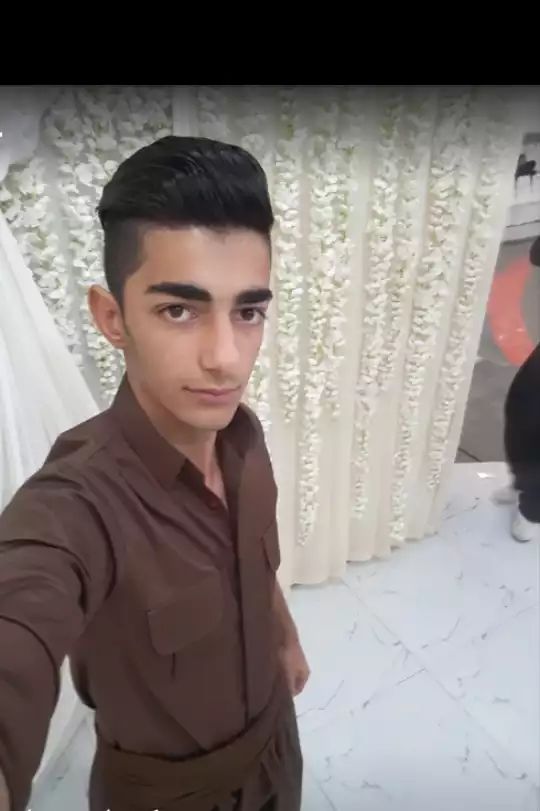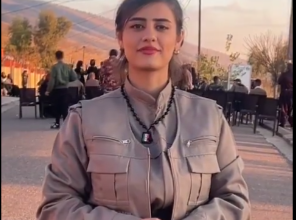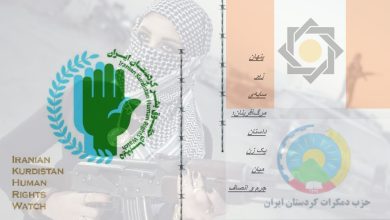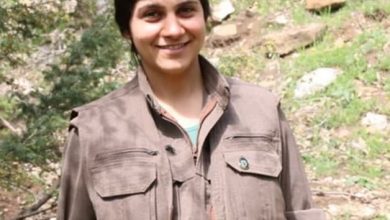Zakaria Rasouli, a 17-year-old from Sardasht, was abducted by PJAK six years ago. His family is still searching for him, and their painful experience provides a clear picture of how this armed group preys on teenagers.
The phenomenon of young people and teenagers joining armed and terrorist groups is one of the most challenging issues in human security, social deviance, and human rights studies. The tragic story of Zakaria Rasouli, a teenager from Sardasht who dropped out of school, is a documented example of this bitter reality that needs to be addressed more by human rights organizations, the media, and policymakers.
Teenagers and the Challenge of Joining Armed Groups
Groups like PJAK exploit economic voids, psychological vulnerabilities, and family crises to deceive and recruit the younger generation, especially in deprived areas. This recruitment is not only a clear violation of children’s and teenagers’ rights, but it also leads to deep family separations, destroyed futures, and participation in violent acts.
The Deception of Teenagers by Kaveh Saqqezi and PJAK
At just 17, Zakaria Rasouli, burdened by family conflicts and financial pressures, became a victim of a well-known PJAK recruiter named Kaveh Saqqezi. This individual had previously been linked to numerous cases of abducting young Iranian Kurds.
Zakaria’s Disappearance: From Home to the Border
Born on January 9, 2002, Zakaria Rasouli left home on August 19, 2019, due to family and economic problems. He was illegally taken out of the country through the Marivan border by PJAK forces after communicating with Kaveh Saqqezi and subsequently joined the group.
Zakaria’s brother, Bilal Rasouli, said that a few days after his brother’s disappearance, he went to the police to report him missing. He even provided a picture to the Rokna news agency for a missing person ad. Using CCTV footage from stores, he traced his brother’s path to near the border, which made him suspect that Zakaria might have joined a terrorist group.
The Family’s Search: Police, Media, and CCTV Footage
After some time, Bilal Rasouli, whose name was on Zakaria’s SIM card, obtained a new one to access his brother’s social media accounts and identify those he had been in contact with.
When he logged into his brother’s Telegram account, he discovered that Zakaria had been in communication with Kaveh Saqqezi, who had deceived his brother. Due to their poor economic situation, the family has been unable to travel to the Kurdistan Region and visit PJAK’s headquarters.
The Experience of Zakaria’s Brother: Bilal Rasouli’s Account
Bilal Rasouli states:
“I am Bilal Rasouli, Zakaria’s brother. I want to tell you everything I know about my brother’s disappearance and fate with honesty and detail, because I feel this pain and this waiting with all my heart every day, and I believe it needs to be recorded. Zakaria had studied up to the first year of high school and then dropped out due to family and financial problems. From a young age, it was clear that we had many financial problems at home; constant shortages and arguments over money and household expenses were a part of our life. These economic pressures and minor and major disagreements between Zakaria and our family members made him gradually withdraw and distance himself from us. I never saw any interest in politics or armed groups in him; he was more concerned about his future, work, and income than anything else.”
The Moment of Escape and the Initial Follow-Up
“On August 19, 2019, Zakaria suddenly left the house and never returned. A few days passed, and we grew more worried. At first, we thought he might have gone to see his friends or to work, but when days went by with no news, we became extremely anxious. I went to the police and officially filed a missing person report. I also gave his picture to the Rokna news agency so that if anyone saw him or knew his whereabouts, they could let us know.”
“One of the things I did was follow up on CCTV footage from the areas we thought he might have gone. With the help of store owners and a few people who were willing to cooperate, we were able to track his last movements to near the Marivan border. At that moment, my heart sank. When I realized his trail went to the border, my suspicions grew stronger that he might have been drawn into a network that takes young people out of the country.”
Discovering the Connection to Kaveh Saqqezi
“A detail that helped us was the SIM card Zakaria used, which was registered in my name. After a few weeks, I retrieved the same SIM card from the operator to see if I could find anything. When I logged into his Telegram and social media accounts, I faced a bitter reality: Zakaria had been in contact with a man named Kaveh Saqqezi. Kaveh was a name I had heard before from several other families—a man who had deceived and lured many teenagers into armed groups over the years. I later found out that Kaveh had fled the country and was living in Syria, continuing his activities from there. When I saw this, I felt devastated; I felt as if a piece of our family had been stolen.”
The Family’s Financial Limitations and Efforts to Bring Zakaria Back
“No matter how hard my family and I tried, we couldn’t go to Iraqi Kurdistan and visit the group’s potential headquarters. We didn’t have passports or the necessary money for such a trip. This was the worst part of the story—that I was helpless and couldn’t go after my brother. Every day, I feel there’s a huge void in our house that no one can fill. Not a day goes by that my mother doesn’t ask, ‘Where is Zakaria?’ and my father has repeatedly been in distress in front of me.”
Hope and Virtual Comfort: Contact with Human Rights Watch
“When we read a report on the Iranian Kurdistan Human Rights Watch website about Kaveh Saqqezi’s deception of young people, we suddenly found a glimmer of hope. In the comments section of that article, I wrote Zakaria’s details and stated that my brother had also been deceived by the same person. I even left our contact number so that anyone with information could call us. Fortunately, someone from the Watch called us later, and we explained the whole story to them. That call gave us a little comfort, but the truth is that virtual comfort is very different from the physical absence of someone you love.”
Six Years of Waiting and Lessons Learned
“It’s been almost six years since Zakaria left. Six years, each day feeling like an internal war. Some days, I have hope that he might have returned or that we can find him. Other days, the fear of the worst takes over me. I have never received a direct call from him, no message from his own words saying where he is and what his situation is—only traces, rumors, and sometimes photos and stories that others tell about the group’s members.”
“All these years, we have also been grappling with a shameful and stressful feeling. Some acquaintances look at us differently and make hurtful comments—labels that further weaken a family in a difficult situation. But we have not given up. We have told friends and relatives many times to let us know if they have any information about my brother’s location or status. I dream about him every night. In my dreams, I see him returning with nothing, smiling and saying, ‘I’m sorry,’ but waking up is always bitter.”
“When I think about those days, I realize there were mistakes that could have been prevented. If our financial situation had been better, maybe Zakaria wouldn’t have left home. If we had talked to him better, maybe he wouldn’t have been deceived. If border officials had been more careful, maybe a 17-year-old wouldn’t have left the country like this. But all these ‘if onlys’ are useless now. The only thing I want is for my brother’s name to be recorded, to tell his story so that perhaps other families will suffer less.”
Final Message and Call for Help
“Today, I, Bilal Rasouli, am here to say: Zakaria was born on January 9, 2002, studied until the first year of high school, and left the country through the Marivan border on August 19, 2019. He has been away from home for six years. We filed a missing person report with the police, gave his picture to Rokna, tracked his path to near the border using CCTV footage, recovered his SIM card that was in my name, and found out through Telegram that he was in contact with Kaveh Saqqezi, a man who has deceived hundreds of young people and is now said to be in Syria.”
“We did not have the financial means to go to the region and visit the group’s headquarters. But when we saw the article from the Watch, we wrote Zakaria’s details below it. They contacted us through the number we left, and we gathered more information. Every day, I pray for news of him, not just for myself, but for our mother and father who are waiting. If anyone reading this has information about Zakaria or about people like Kaveh Saqqezi, please, I beg you to help us.”
“I am Bilal Rasouli, and I am speaking as a brother—a brother who has lived with hope and worry for six years, and whose only wish is for a young man to return home.”






